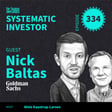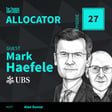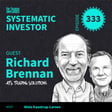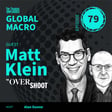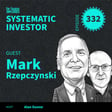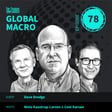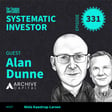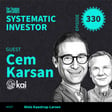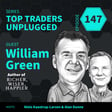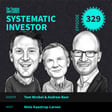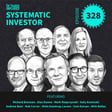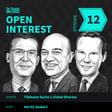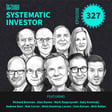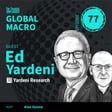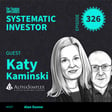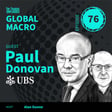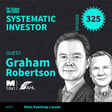
SI324: Embracing Uncertainty using Adaptive Models ft. Richard Brennan
Today, we dive deep into the complex dynamics of global markets and the often overlooked risks that can accumulate during periods of apparent stability. Together with Richard Brennan, we discuss the rising concerns over declining fertility rates worldwide, highlighting how economic pressures, environmental challenges, and cultural shifts contribute to this seismic change. We draw parallels between these demographic trends and the unpredictability of financial markets, emphasizing the importance of adaptive strategies in navigating uncertainty. The conversation also touches on the limitations of traditional risk management models, advocating for a shift towards frameworks that prioritize resilience and adaptability. In this episode you will gain valuable insights into how both personal and economic landscapes can evolve and respond to changing conditions.
-----
EXCEPTIONAL RESOURCE: Find Out How to Build a Safer & Better Performing Portfolio using this FREE NEW Portfolio Builder Tool
-----
Follow Niels on Twitter, LinkedIn, YouTube or via the TTU website.
IT’s TRUE ? – most CIO’s read 50+ books each year – get your FREE copy of the Ultimate Guide to the Best Investment Books ever written here.
And you can get a free copy of my latest book “Ten Reasons to Add Trend Following to Your Portfolio” here.
Learn more about the Trend Barometer here.
Send your questions to info@toptradersunplugged.com
And please share this episode with a like-minded friend and leave an honest Rating & Review on iTunes or Spotify so more people can discover the podcast.
Follow Rich on Twitter.
Episode TimeStamps:
01:37 - What has caught our attention recently?
07:20 - Is now the best time to allocate to alternatives?
12:14 - Industry performance update
17:58 - How we manage uncertainty in "chaotic systems"
25:55 - How to translate ensemble models to trend following
28:25 - The benefits of adding more trend following models
34:10 - It takes guts to be a greedy pig
37:04 - The hidden risks of financial markets
48:47 - Why Value at Risk (VaR) models makes more sense than having stops
56:35 - The inevitable outcome of cycles
01

